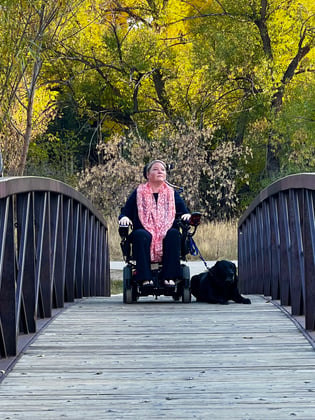The caregiver crisis
Join Our Movement
What started as an idea has become a national movement. With your support, we can influence policy and inspire lasting change.
Become an Advocate
These challenges are real. This is a real crisis for those of us attempting to live an independent lifestyle from the seat of a wheelchair. Fear is a real thing in my life, and I am staring down the barrel of a gun some weeks having to stay in my chair overnight, not getting to bed due to lack of caregiver assistance. I have stayed in my chair for over 24 hours before. In addition, the caregivers that I have on my staff have been wonderful rocks of support, but they are getting burned out; I am fully aware that they also have their own individual lives with families and children that they must live in addition to assisting me on a daily basis. I would certainly be lost without them, and the layers of gratitude that I have for my current staff that has stuck it through these tough times of crisis goes as deep as the earth's core.
The answer, I fear, will never be easy. We are in novel times with unchartered pathways going forward. Will caregivers once again return to our lives and make it easier and more facilitatory to live our best lives? There must be a way to put all our smart brains together as one to create a solution to problems that plague our community so deeply. How do we create a statewide or national directory of caregivers that want to work, that want to be trained, that might want to change their current vocational directions to help folks like me and others in chairs? There must be a way to solve this crisis, and I'm determined to find the solution. Let's open the channels of communication and talk amongst ourselves; let's create an answer to help our community find the best life that we always want to live.
